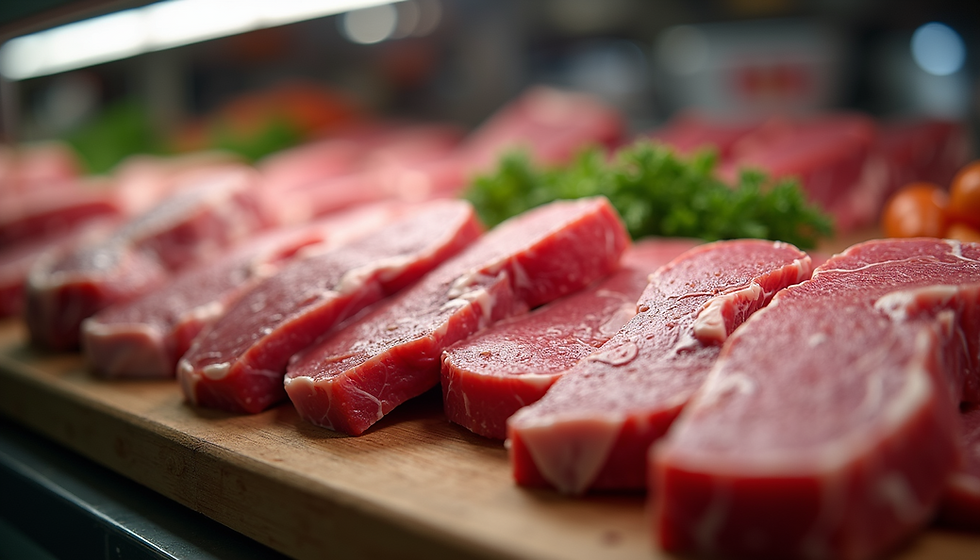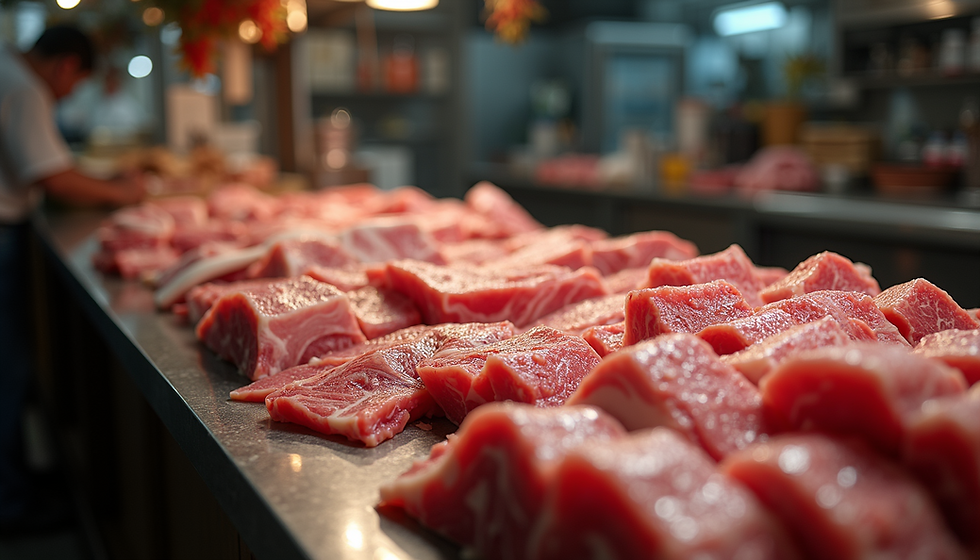How Butcher Shops Maintain Quality Standards Across Australia
- Team @ Ezy Click Answers
- Jul 7, 2025
- 4 min read
Butcher shops hold a special place in the hearts of many Australians. They are not just suppliers of meat; they are also custodians of quality, craftsmanship, and community connection. In Australia, butcher shops maintain high-quality standards that ensure customers receive fresh, safe, and ethically sourced meat. Let’s explore how these establishments ensure quality across the continent.
Butcher Shops Australia: An Overview of Quality Practices
The Australian meat industry is known for its stringent quality standards, driven by the Meat Standards Australia (MSA) framework. This program plays a vital role in maintaining a consistent quality of red meat that meets consumer expectations. Butcher shops play a pivotal role in this process, ensuring that every piece of meat they sell adheres to these high standards.
Butcher shops across Australia often source their meat from local farms that adopt sustainable practices. Many butchers develop relationships with farmers to ensure that the animals are raised humanely, without unnecessary antibiotics or hormones. This not only supports local agriculture but also assures customers of the ethical treatment of livestock.

The Importance of Freshness
Freshness is of utmost importance in the butcher shop industry. A quality butcher shop performs regular stock rotation, ensuring older products are sold first. They keep their meat refrigerated at optimal temperatures to prevent spoilage. Many shops have strict inventory management practices, allowing them to provide customers with the freshest products possible.
To maintain freshness, many butcher shops also offer dry aging services for beef. This process enhances flavor and tenderness by allowing the meat to rest in a controlled environment. Such additional services are part of what sets quality butcher shops apart from average grocery stores.
Is it Cheaper to Buy from a Local Butcher?
Many consumers often wonder whether purchasing meat from a local butcher shop is more cost-effective than buying from a supermarket. While prices may vary, buying quality meat from a butcher can sometimes offer better value for money, especially when considering the quality and sourcing of the meat.
Local butcher shops frequently have lesser overhead costs compared to larger supermarkets. This can allow them to offer competitive prices without compromising on quality. Furthermore, buying in bulk or selecting daily specials can also lead to savings for customers who are looking to stock their freezer.
Butcher shops also provide personal service that supermarkets often lack. Knowledgeable butchers can offer cooking tips, recipe ideas, and guidance on different cuts of meat, which can be invaluable for home cooks. This level of customer service can sometimes make the slightly higher price worth it for high-quality, ethical meat products.

Quality Checks: What Butchers Look For
Quality control measures begin as soon as the meat arrives at the butcher shop. Butchers inspect every delivery for freshness, proper packaging, and signs of spoilage. The Merino wool used for wrapping meat, for example, provides a natural barrier against bacteria, ensuring that the meat remains fresh longer.
Training is vital in quality maintenance. Employees undergo regular training to recognize quality indicators, including color, marbling, and smell. Each butcher has a unique understanding of the cuts they sell, honed through experience and education. This expertise allows them to provide recommendations to customers based on preference, occasion, and cooking method.
The Role of Hygiene in Quality Standards
Hygiene is critical in any food-related business, and butcher shops are no exception. A clean environment helps prevent contamination and ensures that food safety guidelines are met. Most butcher shops adhere to strict hygiene protocols, including regular sanitation of surfaces and equipment.
Butchers often wear protective gear, including gloves and aprons, to maintain cleanliness. Additionally, all employees are trained in food safety practices. Shops conduct routine audits to ensure compliance with health regulations, safeguarding both customers and staff.

Community Trust and Reputation
Finally, the success of a butcher shop often hinges on trust and reputation within the community. Many families have relied on the same butcher for generations, fostering a relationship built on mutual respect and reliability. The butcher shop acts as a local hub where customers can discuss their needs and preferences while learning more about the meat they are purchasing.
Online reviews and word-of-mouth recommendations play a significant role in maintaining a butcher shop's reputation. Butchers who engage with customers and provide a high level of service are likely to foster loyalty, which is crucial for long-term success.
Building Sustainable Practices for the Future
As consumer preferences shift towards sustainability, many butcher shops are adapting to include eco-friendly practices. Sourcing local, organic meat is just the beginning. Some shops are venturing into zero-waste initiatives, using every part of the animal where possible, reducing overall waste.
Moreover, many butchers are increasing their offerings to include plant-based alternatives, catering to the growing number of vegetarian and vegan customers. By diversifying their product lineup while maintaining quality standards, butcher shops can appeal to a broader audience.
In conclusion, butcher shops are more than just places to buy meat; they symbolize quality, tradition, and community engagement. Through rigorous quality control measures, attention to hygiene, and sustainable practices, butcher shops across Australia ensure that they meet the high expectations of their loyal customers. By supporting your local butcher, not only do you get exceptional quality meat but also contribute positively to your community. Want to learn more about practices in a butcher shop Australia? Engage with your local butcher today!



Comments